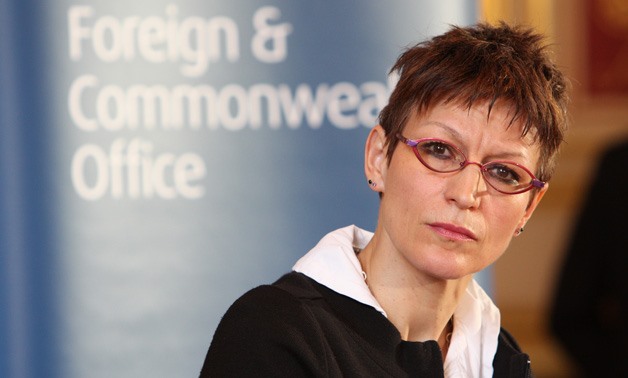
UN Special Rapporteur Agnes Callamard -
Creative Commons Via Flickr
CAIRO – 8 June 2017: The Special Rapporteur on extrajudicial, summary or arbitrary executions, Agnes Callamard, called on Wednesday for gender-based killings to be recognized as a form of arbitrary execution. Gender-based crimes and deaths include domestic violence and so-called "honor killings.”
Callamard presented her first report in the capacity of Special Rapporteur on extrajudicial, summary or arbitrary executions to the UN Human Rights Council in Geneva. The report included recommendations to governments to do more effort to tackle the hugely disproportionate rates of violence suffered by women around the world. She added that these efforts should include recognizing attacks on women as human rights violations and domestic murders as a form of arbitrary execution.
She said that global statistics show that nearly half of all women homicide victims were killed by family members or intimate partners, whereas the rate for men stood at five percent. Her report details extreme rates of violations of the right to life perpetrated against women and girls with disabilities, amongst others.
'When added to other factors such as race, ethnicity, religion, class, disability or sexual orientation, gender is central to determining the risk and predictability of harm, including killings,' the Special Rapporteur said.
Her report highlights that gender-based violations don’t only result from intentional acts, but also from a lack of basic conditions and services that guarantee life, such as access to food, water, health services and housing.
French Agnes Callamard, has a distinguished career in human rights and humanitarian work globally. Callamard is the Director of Columbia Global Freedom of Expression at Columbia University. She advised organizations and governments around the world, and led human rights investigations in more than 30 countries.
The UN Special Rapporteurs are part of the Special Procedures of the Human Rights Council. Special Procedures, the largest body of independent experts in the UN Human Rights, is the general name of the independent fact-finding and monitoring mechanisms of the Human Rights Council that address either specific country situations or thematic issues globally. Special Procedures' experts are independent and they are not UN staff. They do not receive a salary for their work.
Comments
Leave a Comment